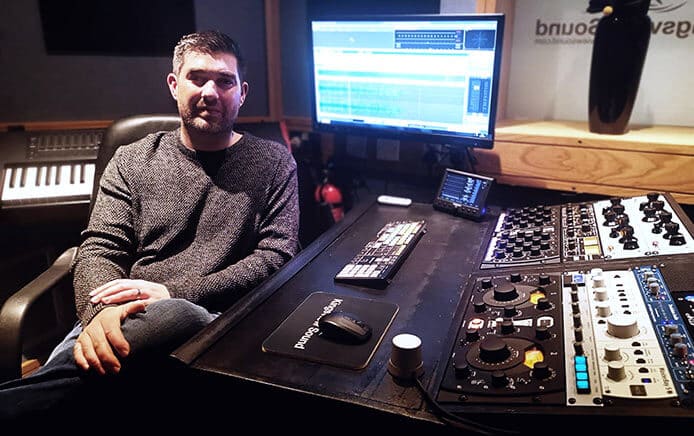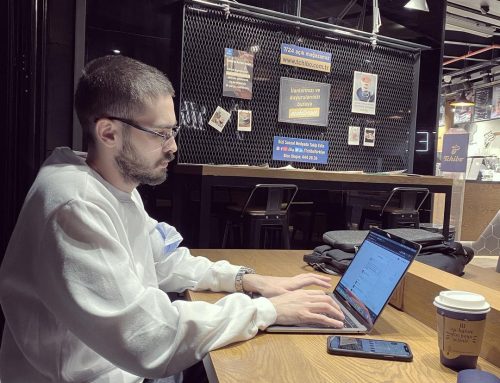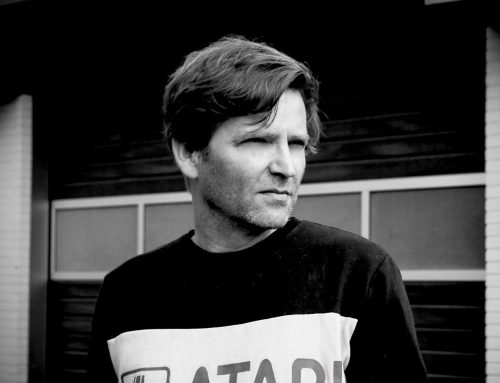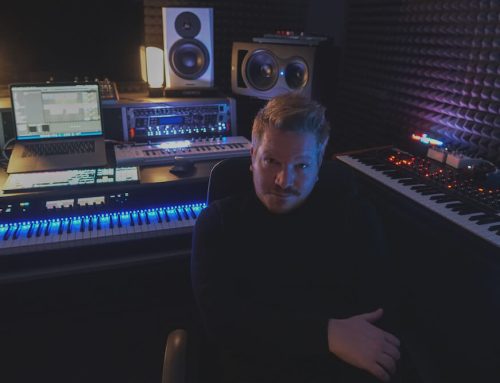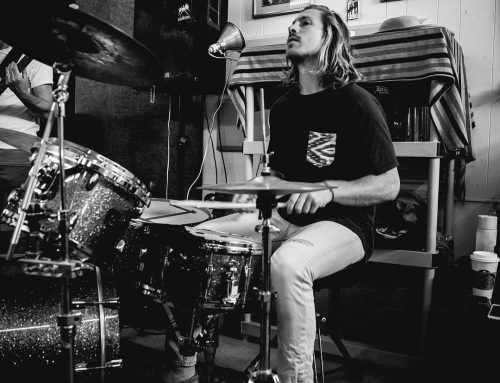Mark Shrimpton – Mastering Engineer at Kingsview Sound
My name is Amin and I’ve had the honor to interview Mark Shrimpton. He’s a highly professional mixing and mastering engineer with years of experience and he’s going to give us some of those for free!
At first, I asked Mark to tell me about himself and how he has reached out to his current state.
I got the music engineering bug at a really young age. I produced and mixed my first record when I was just 13 years old, back then I was releasing Drum & Bass for an indie record label called Rogue Trooper Records here in the UK under the name ‘DJ Creation’.
In my later teens a new genre of music started to blow up here in Essex (UK) where I am based called ‘UK Garage’. It was at this point I started to produce and remix tons of tracks under different aliases within the UK Garage genre mainly being released on white label vinyl pressings. I became quite well regarded as part of the production name ‘Distant Soundz’, which also earned us a national hit here in the UK.
I always remember mastering engineer ‘Freddy Freshplate’ who worked out of JTS in Hackney, he was so brutally honest when he didn’t like a mixdown he would sometimes even dismiss the customer from the room! which sounds pretty harsh by today’s standards, but it meant every producer and engineer had to come with their best work each week. It did kind of create a healthy competition as everyone wanted to get their music actually cut to acetate and not to be expelled from the cutting room! haha
Most the engineers and producers would sit at JTS critiquing each other’s mixdowns, being the painfully shy kid sat in the corner I would just sit there listening to the music and taking in all the feedback being thrown around the room, to be honest there were some pretty heated moments between engineers!
Well, I think now it is actually happening all the time globally over the internet. Some of the most heated moments I’ve seen happen on YouTube comment sections.
It seems like there were more limitations on choices while mixing back then so that it could make the job much more challenging. As far as I see, people are very open to weird and new sounding combinations within the mixed context and they can simply approach it as a new style of mix. Personally I believe that’s pretty good, as long as there’s no reverb on sub-bass or the snare doesn’t tear up the ear with the highs.. lol
Fast-forwarding a bit now at 38 years old I’m quite lucky for my age to have 25 years’ experience of mixing, mastering under my belt. It’s not been an easy ride by any means, but I am extremely thankful to have had the opportunity of working with some extremely well-respected artists, labels and engineers during this time.
As moved forward I asked Mark about his mastering studio “Kingsview Sound”. I was wondering how he’s managing the studio and if he’s got staff working for him inside.
I started up Kingsview Sound back in 2015 as I was initially offering my services to artists and labels I had already had a working relationship with so I thought I would move with the times and setup an online mastering portal via our website www.kingsviewsound.com
There is quite a thriving music scene in Essex where Kingsview Sound is based so it’s really nice to be able to work with local up and coming talent as well as the more mainstream labels and artists that master with us.
I’m a bit of a perfectionist, to be honest, so I personally master all the orders that come through Kingsview Sound. I think this is a really important selling point for the studio as most of the work comes in via repeat business and recommendations so not having potentially different engineers working on their projects is quite reassuring for the client.
Quality comes first. It is very hard to find people who match up with your level that can push you through your career.
Over the past few years, many engineers make a living off working with clients that they meet online without ever meeting them in person. The opportunity allows professionals to have access to all demands across the world. But it is quite difficult to gain trust over the internet!
I asked Mark to see how often he does this actual type of work. “Working Remotely”.
I would say 90% of my mastering work is done remotely now I guess that’s the beauty of the internet is the client hasn’t got to be in the room with the mastering engineer anymore.
And a lot of us work better when we sit alone in the studio with all our focus…
Also, remote mastering allows me to keep the costs down for the client as I can fit their mastering slots in around my schedule which is a really good thing for both parties.
Sometimes when stem mastering I may have either a voice or video call with the client first if some of the stems supplied are a bit misleading or I need further direction on what their vision is for the project.

So then I tried to get some information from Mark regarding his point of view to his main profession, ‘mastering‘.
I think now with more up and coming artists producing and mixing their own material in home studios there is a bigger focus on the mastering stage than ever before.
From personal experience when I was just starting out as a kid producing my own music in my bedroom I could never understand why my mixes never sounded as good as other producer’s music I was listening to.
At this time there were no YouTube or online blogs to find out about mastering, so I just assumed it was down to my mixes being wrong or weak.
It was the day when I first sat in on a mastering session that I had one of those eureka moments. I heard a track I produced in my bedroom start to sound professional in front of my ears and sound on par with the other producer’s music I had been comparing my mixes to.
I still think this is the best thing about mastering, that the buzz that artists and mix engineers get when a project they have worked on for weeks comes back from mastering, it’s just that excitement of hearing that first play…it never goes away.
This is always in the back of my mind on every mastering project I work on as I want the client to listen to the master for the first time and have that excitement and wow factor that listening to a great master brings.
That is exactly a great explanation for mastering. Many times people told me, they just expect the mastered track to be louder, or cleaner, or so…
But the fact is what Mark has just mentioned. That is the natural feeling you get after listening to the mastered track. It is a combination of all the artistic and technical acts that the engineer implements on the track.
The reading culture doesn’t seem to be as popular these days. I think one of the reasons would be the fast rushing of our daily routines which doesn’t allow us to sit down and open up a book, read and turn the pages.
I asked Mark to see if he does read and if he prefers reading books or articles and blogs.
If I see a book on audio mastering, I would normally buy it as I think it’s important to always keep learning and trying different approaches.
To be honest it’s a real mixed bag out there as a lot of the books on the subject of audio mastering seem to be more focused around the history of different media types i.e. Vinyl, CD and MP3 rather than the creative process of mastering audio.
That said there are some very good ones! Bob Katz – Mastering Audio is almost seen by most as the mastering engineer’s bible and another good read is Audio Mastering Essential Practices published on Berklee Press.
Blogs and articles are a great way to pick up new tips and tricks as there is so much free learning content out there these days. Although I would say to anyone starting out sites such as YouTube can be a great tool for learning, but I have seen some really, really bad advice on there as well, so learn with caution!
I was wondering how long it normally takes for him to finish up a mastering session.
I typically allow an hours studio time to master a track. this gives me time to import the file, listen to any reference material, master and produce the mastered file for the client.
Normally I would have a 5 minute ‘cup of tea’ listening break before recording down the master and making any final tweaks.
Recently I have seen some mastering engineers with business models to master dirt cheap and as quickly as they can which doesn’t really sit that well with me.
When weeks and sometimes months of work has gone into a project I feel the mastering engineer should put as much care and attention into the project as the client has. Maybe I’m just from the old school of thought! haha
I guess the same could be said about some of the automated online mastering services popping up as well. Don’t get me wrong these serve a purpose and are great for people wanting their music mastered instantly and cheaply, but to me it’s a bit like getting a latte coffee from a vending machine or having one made by hand by an experienced barista. Nothing wrong with either but I know which I would prefer any day of the week!
Let’s check out some of the tools he often uses on his mastering chain. Plugin or hardware.
Here is a selection of my favorite ‘In The Box’ plugins for stem mastering that have typically ended up in most of my sessions recently:
Sonimus Satson: this just adds a suitable little something when summing stems in the box, plus for rolling off highs and lows it’s a perfect choice.
BrainworxBX_2098: a great-sounding EQ, I use it for gently bringing out the 2-5K range on stems and the channel emulations can work great on summing as well.
Waves Factory – Trackspacer: when the kick and bass stem are battling each other just a touch of Trackspacer on the bass stem can absolutely work wonders.
Kazrog Kclip 3 – we have a Lynx Hilo converter in the studio which is great sounding and really flexible. It doesn’t soft clip the inputs like some other converters on the market so Kclip 3 is great for achieving this. The Kclip 3 can be really transparent when used subtly and a real bargain for the price!
From my Hardware I typically have the following engage on most masters:
SPL PQ – just a beautiful sounding unit even with just subtle boost and cuts it adds a wonderful 3D depth to the sound.
SPL IRON – even with the compressor just barely tickling the signal it adds body to the audio that only hardware can bring. It’s so flexible it can handle nearly all mastering situations and its built like a tank!
How to take care of your ear as a mastering engineer
I think being sensible with levels is so important. When mastering EDM, in particular, its quite temping the crank the monitors right up as after all it’s a genre of music made for clubs!
My approach is to master at lower levels first and then listen to a pass of the track at a higher level when I am ready to record it down, especially if it’s a club track just to get a vibe that it’s working and hitting in the right areas.
The amount of producer and engineer friends who have suffered from periods of tinnitus due to listening to audio at high levels for long periods of time is quite shocking. It’s so tempting for the volume to creep up in long sessions in both mixing and mastering situations, so every so often just makes a point of pulling the volume back a bit and taking a break.
Personally, I also try and steer clear of in-ear headphones when I can. It always worries me when I hear people walking past me in the street with in-ear headphones on and I can hear their music crystal clear. To have audio blasting just a few millimeters from your eardrums for prolonged periods of time is just bad news, our ears were never designed for that level of abuse!
Nowadays many professionals have to spend so many hours daily in-front of screen monitors. That can be harmful and cause major health problems for individuals. It is ideal to find solutions to maintain healthy while accomplishing the tasks.
I asked Mark to see how many hours he spends on his laptop or phone daily. And how he feels about it.
This is quite a relevant question for me at the moment as someone who suffers from vestibular migraines, which has apparently become an increasing problem in recent years amongst people whose professions mean they spend long periods working on computers.
I think the problem now it’s hard to turn off we all spend most of the day on computers and when we aren’t on our computers we are on our smartphones scrolling away. We are all guilty for looking at our phones before bed if we can’t sleep we look at our phones and then most of the time it’s the first thing we look at in the morning!
Always take regular breaks, use screen protectors if your eyes are feeling strained and just taking the time to unplug sometimes. There is a whole world out there that isn’t on Facebook!
Do you ever think about retirement Mark?
I play the lottery so yes!… Actually I played tonight so I could be retiring next week if that ticket comes in!
Has your job affected your personal life in any way?
I am lucky to have a very understanding wife! haha
On a serious note having been faced with overcoming a few challenging periods in my life in recent years so it does make you reassess things a lot. Most importantly finding a healthy good work-life balance is so important these days.
Working in any of the arts has always been considered a tough gig, but I think the music industry can be one of the most ruthless.
The number of times I have heard people say ‘‘it’s the nature of the business’ over the years as justification for not paying invoices or not treating someone with the respect they deserve. This is one area that desperately needs to change in the music industry, I just worry though with a lot of indie labels closing down and the reduced revenue generated by streaming platforms compared to physical media sales it may only get tougher out there for our profession.
Please feel free to share an important life lesson you’ve learned.
I think it’s really important for anyone looking to get into mix or master engineering as living is to always have another string to your bow. Nearly all the engineers I personally know now have other sources of income in addition to their mastering services. Whether that been online tuition, lecturing or even something completely not music-related.
Building up the reputation as a mastering engineer takes time (it’s taken me many years!) as you need to get that catalog of releases and artists under your belt. Even once you have built up a solid reputation like with any retail business there is no guarantee you will be booked out with customers every single day. Keeping your fingers in a few pies, especially in the current economic climate I think is sound advice!
Thank you again, for joining this Interview Mark!
[/fusion_text][/fusion_builder_column][/fusion_builder_row][/fusion_builder_container]

